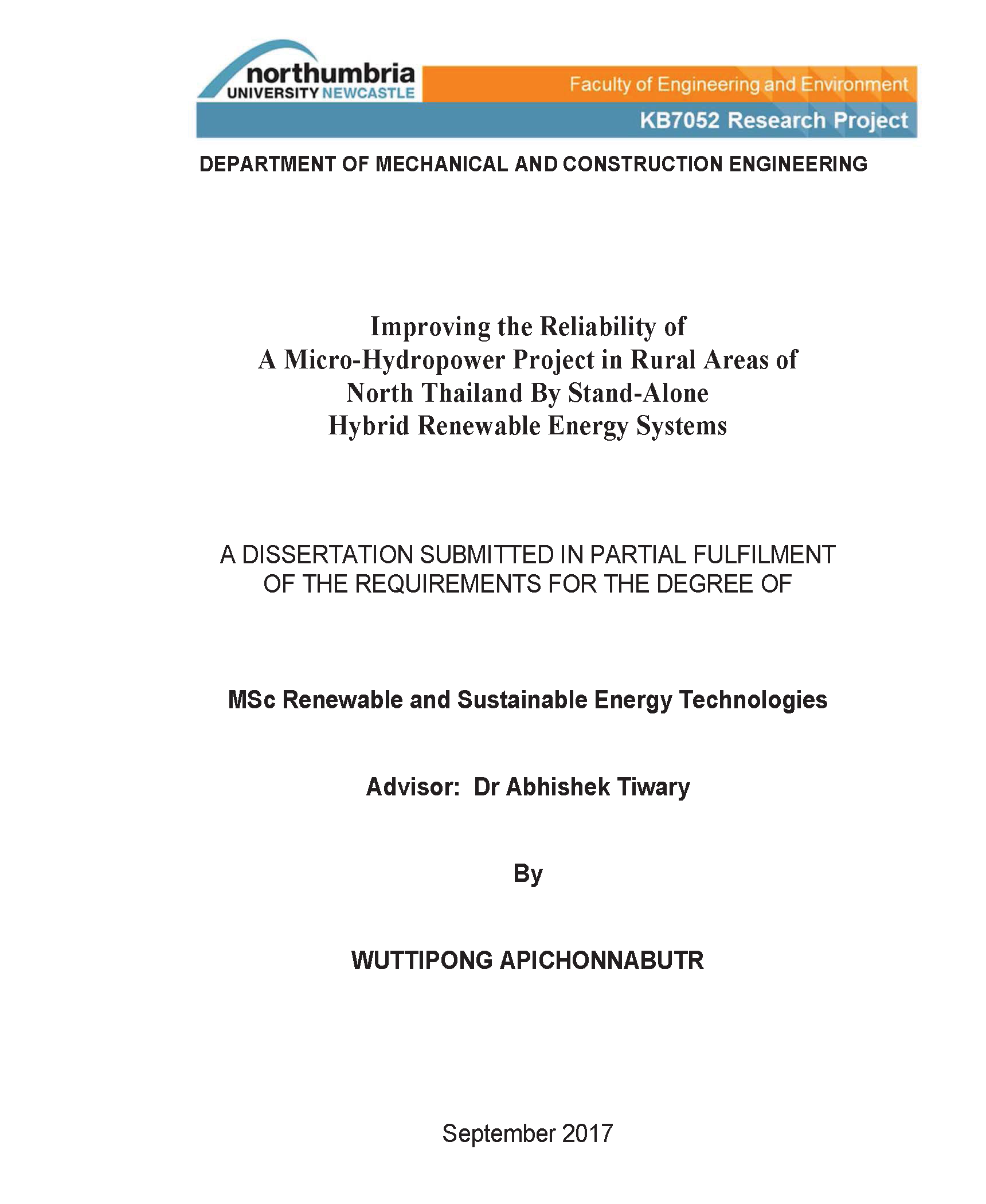Improving the Reliability of A Micro-Hydropower Project in Rural Areas of North Thailand By Stand-Alone Hybrid Renewable Energy Systems

The use of renewable energy is rapidly increasing worldwide. Also, renewable energy in Thailand has been promoted by the government that planned to use 30% of RE in 2036. This research focuses on Khun Pang micro hydropower project, Chiang Mai, Thailand. The electricity production of the project cannot meet the demand in summer. This paper examined ways of improving the reliability of Khun Pang micro hydropower project by stand-alone HRES. This research considered the reliability, stability and cost effectiveness of HRES by using the HOMER software. This paper simulates two scenarios of HRES modelling. The first scenario is current load demand (50.83 kW peak). The second scenario is total load demand in the future (78.51 kW peak) that includes current load and future load. The results from HOMER simulation showed hybrid Hydro/Diesel/Battery would be suitable for the first scenario where project and energy cost are $92,441 and $0.0705 (diesel 0.75 $/L). Also, the hybrid Hydro/PV/Diesel/Battery would be suitable for the second scenario where project and energy cost are $198,435 and $0.0966 (diesel 1.25 $/L). Wind energy will not be suitable for this project because wind speed is too low and can produce electricity less than 1 kW of electricity
Keywords: Micro-hydropower project, Stand-alone hybrid renewable energy systems, HRES, HOMER, Renewable energy, Hybrid Hydro/Diesel/Battery, Hybrid Hydro/PV/Diesel/Battery
ลิงค์ที่เกี่ยวข้อง
บทความงานวิจัย การปรับปรุงความมั่นคง ความน่าเชื่อถือและการเพิ่มประสิทธิภาพของโครงการไฟฟ้าพลังน้ำขนาดเล็กมากในพื้นที่ชนบทของภาคเหนือของประเทศไทย http://webkc.dede.go.th/testmax/node/5097
